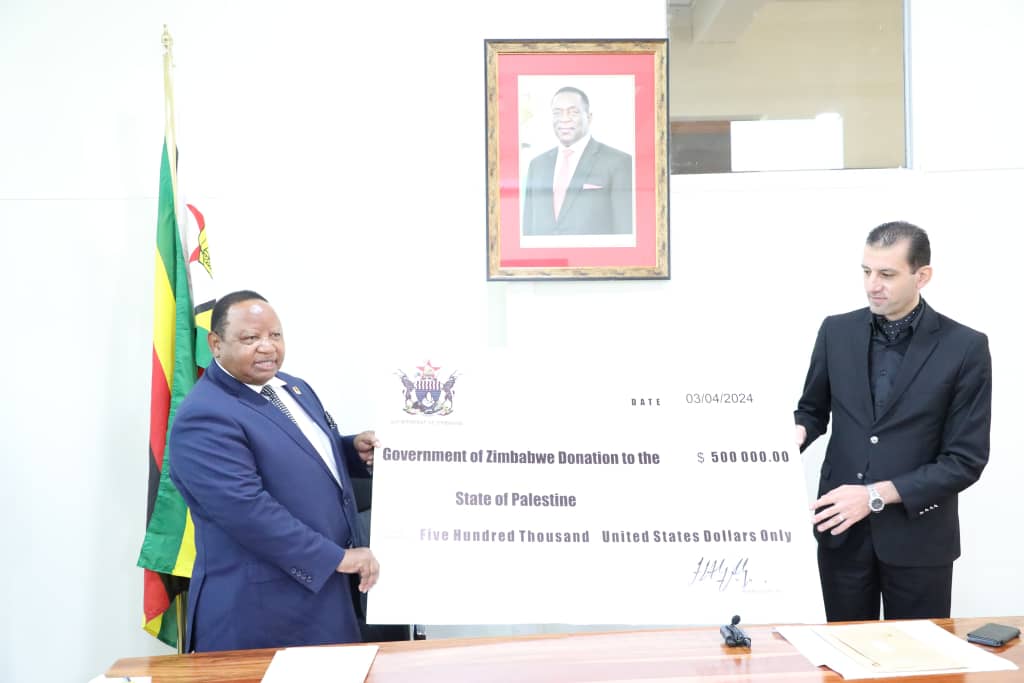Zimbabwe governement’s plan to ease off currency crisis by introducing the much controversial bond notes have been thrown into fresh confusion after Germany banknotes printing specialists Giesecke and Devrient refused to offer their services.

The controversial proposal, first raised last year , was meet with stiff resistance by Zimbabweans as they suggested that was another way of introducing the Zimbabwe dollar.
Related:
- Bonyongwe blames bond notes for cash crisis
- Bond notes could provide Mugabe’s much-needed endgame
- CASH SHORTAGES IN ZIMBABWE | Crisis worsens as nation awaits bond notes
- Bond notes crisis hits Zimbabwe
- Minister Bond Notes an Essential Tool to Fight Western Sanctions
- US dollar notes disappear from circulation in Zimbabwe to pave way for bond notes
- Mujuru fights to stop bond notes
- Zim Wages to Be Paid Partly in Bond Notes : Central Bank Governor
- #Tajamuka: Zimbabwe braces for bond notes demos
Giesecke and Devrient’s refusal to print bond notes for the cash-strapped Treasury, prompted the desperate government to turn to neighbouring South Africa and other countries for help.
As the confusion surrounding the introduction of the surrogate currency reigns supreme, questions have been raised on the legality and terms of a US$200 million African Export and Import Bank (Afreximbank) facility purportedly backing the bond notes.
The controversial bond notes are now expected to be introduced next month.
Zimbabwe is in the grip of a serious cash crunch, which has worsened gradually since the country abandoned the local currency in 2009 for a basket of international currencies dominated by the United States dollar.
Low nostro account balances and a surge in government borrowings last year triggered biting liquidity shortages.
Sources say the German firm, which has previously helped the southern African nation print money, is reluctant to print the bond notes as the exact terms of the so-called Afreximbank facility continue to be shrouded in secrecy.
The same German company stopped printing the worthless Zimbabwe dollar in 2008 due to hyperinflation at the height of the country’s unprecedented economic meltdown.
An official from the German embassy in Harare told the Zimbabwe Independent that Giesecke and Devrient would not print the bond notes.
This raises questions as to whether the government will introduce the notes by end of October as claimed by the Reserve Bank of Zimbabwe (RBZ).
“According to information that we have from the said company, it will not print bond notes for the government of Zimbabwe. Other than that, I cannot say more,” an official from the embassy said in a telephone interview on Thursday.
In 2014, government engaged the South African Mint Company, a subsidiary of that country’s central bank, to mint bond coins to ease shortages of coins and loose change.
The public has in recent months protested the introduction of the bond notes, saying this is a ploy by the broke government to introduce the moribund Zimbabwe dollar through the back door.
Contacted for comment on whether the Germans had rejected Zimbabwe’s plan, RBZ governor John Mangudya said: “Please kindly be advised and satisfied that the bond notes are being printed out of Zimbabwe.”
Questions sent to the South African embassy were not responded to by the time of going to print.
Last week, the International Monetary Fund (IMF) professed ignorance over the existence of a US$200 million facility from the African Export Import Bank (Afreximbank) which the Zimbabwean government claims will be used to back the soon-to-be-introduced bond notes.
Asked whether or not the IMF knew anything about the fate of the US$200 million facility which Zimbabwe has repeatedly announced it will get from Afreximbank to back the bond notes, IMF press officer Andrew Kanyegirire said he had no information on the subject.
“I don’t have any information on the Afreximbank loan either,” Kanyegirire said, according to a transcript of an October 8 IMF African department press briefing.
In May this year, RBZ head in charge of exchange control Morris Mpofu told delegates attending the Chamber of Mines of Zimbabwe conference the bond notes would be printed in Germany.
“The printing of bond notes is being done by the Germans,” Mpofu said. “The Germans who printed the South African rand which we recently impounded at Harare International Airport and later released are the ones printing the notes. The Germans are being asked to print US$200 million worth of notes.”
Speaking at a luncheon after the official opening of parliament early this month, Vice-President Emmerson Mnangagwa said government was working on a statutory instrument to support the introduction of bond notes.
Mnangagwa, who has since attempted to allay market fears by saying the bond notes would not replace the multi-currency regime, then said government wanted some currency it would control, sending mixed signals on government’s intentions.
“Let me assure you that it is not a dream. It is going to be reality. We are going to live with it. Those who can easily realise that reality should begin to accept that bond notes will be with us. We are in the middle of crafting legislation to introduce the bond notes,” Mnangagwa said. “The current financial service sector in the country is constrained by the fact that currently the legal tender of the country is anchored on currencies that we have no control over. We need a mode of transaction which we can control in the country on the basis of security provided by the Exim Bank.”
Last month, the central bank said the bond notes would be brought into circulation at the end of October and a measured approach will be adopted to gradually increase the total stock of the surrogate currency to about US$75 million by year-end. The bond notes, the central bank said, were meant to ease cash shortages, plug externalisation and money laundering after it reported that nearly US$2 billion was siphoned out of the country last year.
In May, the RBZ announced it would introduce bond notes as a 5% incentive to exporters. The apex bank said the incentive would be discontinued once exports reach the US$6 billion mark from US$1,125 billion for the six months to June.
But the news received an adverse response from the market which suspected the new notes were part of a ploy by the government to introduce the discarded Zimbabwe dollar which became worthless due to runaway inflation and low foreign currency reserves.
Government sources told the Zimbabwe Independent that there is no term sheet between the RBZ and Afreximbank on the US$200 million facility purportedly backing the bond notes, raising eyebrows over the monetary issue.
Suspicion over the facility has been heightened by the fact the regional bank has not posted on its website anything on the US$200 million export facility, raising questions on its transparency. Tellingly, other loans extended to Zimbabwean institutions by the Cairo-based bank are openly listed.
According to the regional bank’s website, one of the most recent facilities Afreximbank has with Zimbabwe is the Afreximbank Trade Debt-backed Securities (Aftrades) signed in 2014. The bank has also extended a facility to the private sector in Zimbabwe. Aftrades is a US$100 million facility and associated instruments aimed at alleviating the liquidity challenges confronting the financial sector in Zimbabwe.
In June, a lawyer of #ThisFlag movement Fadzai Mahere took the RBZ governor to task over the legality of bond notes. She cited Section 68 of the constitution which states that every person has the right to administrative justice.
“Dr Mangudya is part of the government. His office is created under Section 14 of the Reserve Bank Act and is subject to Section 68. In other words, he owes us an obligation of lawful conduct, reasonable conduct, conduct that is procedurally fair and substantively fair,” she said in June. “Fair is huge criteria. Is it fair to take my money and give me paper in return? It is obvious that his conduct in proposing to do so is unconstitutional. Nowhere in the Reserve Bank Act is the power given to the Reserve Bank governor to issue bond notes. In fact, bond notes are a creation of the governor.”
In August 2014, Afreximbank agreed a US$150 million financing facility for Econet Wireless Global Limited, Mauritius, to enable the telecoms company to fund its expansion programme.
Pro-democracy activists have approached the RBZ, querying the timing of the bond notes and the legal implications of the facility which was not ratified by parliament. Protests have been held in the capital over bond notes with bankers saying the government should opt for the use of the rand instead of bond notes.-ZimInd






